A climate-neutral economy is the only way – BCSDH Business Lunch with Julian Hill-Landolt
„The world is facing three critical challenges: a climate emergency, loss of natural diversity, and growing social inequality. The COVID-19 pandemic has shown that these challenges are closely interconnected and our systems are not prepared for such shocks. Vision 2050 – Time to Transform – also available in Hungarian – outlines where systemic change is needed and sets out a new framework, with nine transformation pathways” – said Julian Hill-Landolt at BCSDH’s annual Business Lunch. The professional program of the event focused on accelerating systemic change and transition to a climate-neutral economy.
At the event, with the announcement of the ‘For a Sustainable Future’ award, the extraordinary achievements of leaders and companies in terms of helping achieve the Sustainable Development Goals (SDGs), as well as outstanding action taken during the pandemic, were recognised in four categories. And the graduates of this year’s “Future Leaders” Talent Program received their diplomas in the same ceremonial setting.
Budapest, 7th October 2021 – Global average temperatures are already 1.2°C above the pre-industrial level. A substantial acceleration of ambition and action is needed to meet the Paris Agreement targets. What will it take to generate the same rate of change (that is similar to the rapid digital switchover generated by Covid) in other areas? What can the business sector do? The “Vision 2050: Time to Transform” transition schedule and business sector’s net-zero commitments were presented at the business lunch of the Business Council for Sustainable Development in Hungary (BCSDH).
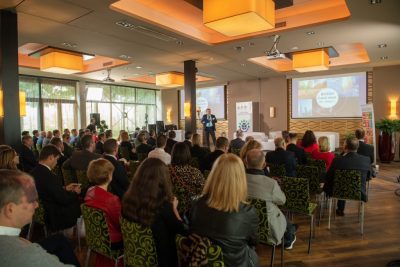
Vision 2050: Time to Transform- presented by Julian Hill-Landolt
The WBCSD has described the necessary systems transformations in Vision 2050: Time to Transform. To move to a world where more than nine billion people all live well within planetary boundaries requires companies – like yours – to set ambitious net-zero and nature positive targets and, more importantly, to put in place operating plans to deliver these targets and create transformational collaboration across value chains.
“Going beyond business as usual is essential for accelerating the transformation. Business leaders need to shift their mind-sets in three areas: developing a form of capitalism that rewards true value creation; focusing on building long-term resilience; and engaging in regeneration.
The business sector is taking a leading role, but it must work with academics, regulators, and investors, developers, and consumers to promote system transformation together. This collaboration at unprecedented levels is the only way to deliver the rapid change needed to ensure that all people can live well within planetary boundaries by 2050” – said Julian Hill-Landolt, director of the WBCSD.
You can download the Hungarian version of Vision 2050: Time to Transform from here.
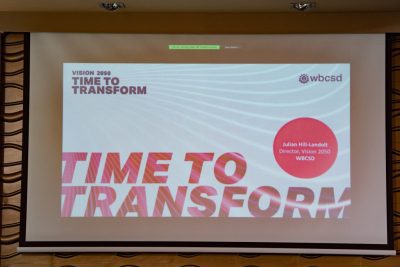
Most of BCSDH’s member companies have made climate-related commitments, and 31% have net zero commitments as well.
“This year is the year of action. Countries must commit to net zero emissions by 2050. Ahead of the COP26 in Glasgow, governments will have to submit much more ambitious national climate plans. Companies must do the same if they want to protect people, themselves, and the economy from the catastrophic consequences of climate change. No longer can ‘low-carbon’ be the sole objective: climate neutrality must be achieved urgently through new technological solutions and rapid changes in consumption patterns at all levels” –stressed Attila Chikán Jr., president of the organization. – “The BCSDH aims to generate changes in models and business solutions in Hungary that have a real impact on climate change and can generate real responses to domestic challenges due to their take up by other companies. He added that “committed leaders and change makers are vital to making sustainable economic activity more strategic. The mission of BCSDH is to support its member companies to be active agents in shaping the necessary changes”.
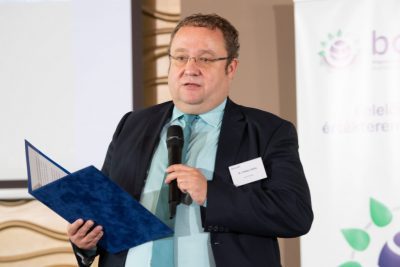
Márta Irén, Director of BCSDH, moderated the “How to lead the Transformation?” CEO-roundtable, which was attended by leaders already at the forefront of system-wide transformation such as:
- Zsolt Csavajda, Managing Director, DSM Nutritional Products Hungary
- Csaba Kandrács Dr., Vice President, Hungarian National Bank
- Tímea Pesti, CEO, Leaseplan Hungária
Main sponsor of the program: Nestlé. Highlighted sponsors: Deloitte, Sió-Eckes, sponsors: Alteo, E.ON, Folprint, Hungarocontrol, HVG, MOL, Leaseplan, Unilever

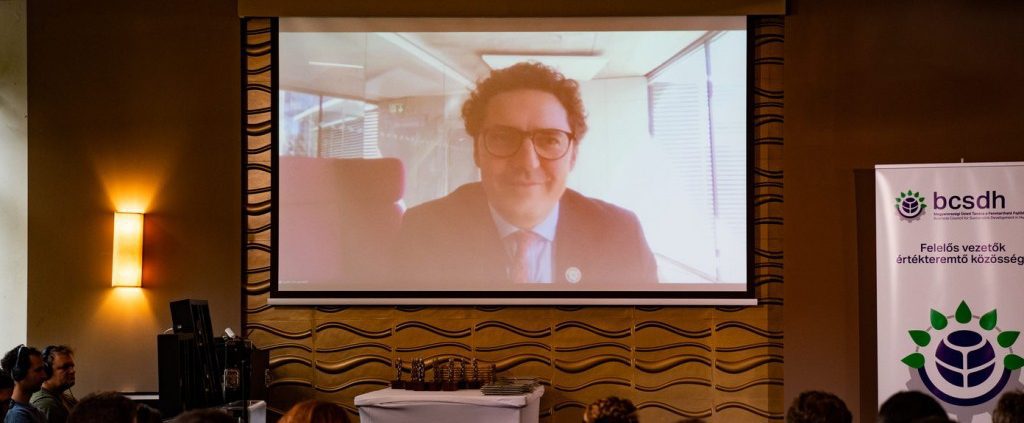

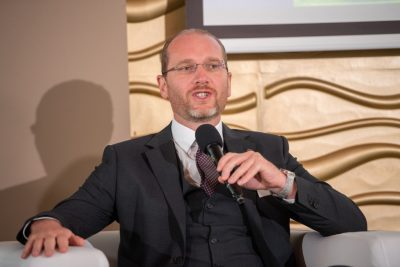
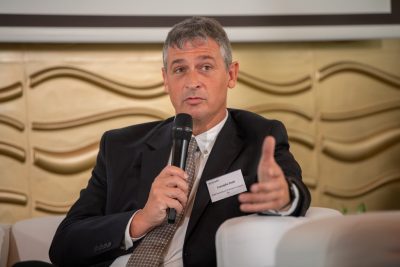



Leave a Reply
Want to join the discussion?Feel free to contribute!